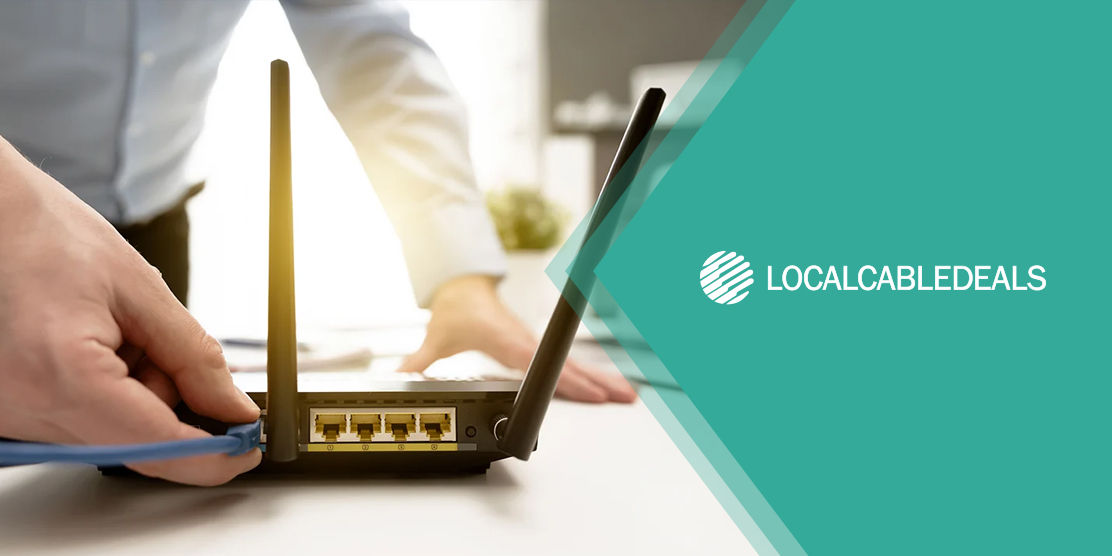Wires can be messy and bothersome when you have limited space. The place would look so much tidier if you could get rid of half the cables – switching to 5G Home Internet is one solution.
One of the biggest benefits of 5G internet is its wireless infrastructure, which is ideal for apartment living. On top of that, it doesn’t fall short on performance either.
Could 5G be the solution to all your connectivity problems? Here’s a complete rundown of 5G Home Internet pros and cons to help you find an answer.
What is 5G Home Internet?
Mobile carriers have been marketing 5G data plans for years, so you’re probably familiar with the fact that it’s the fifth generation of cellular networks. Compared to 4G and previous generations, 5G offers much faster internet with lower latency.
Many mobile carriers are offering 5G Home Internet plans as an alternative to traditional broadband internet. 5G Home Internet works the same way as 5G mobile data; you’ll need a SIM card to wirelessly connect to your carrier’s nearest cell station.
However, unlike mobile data, 5G Home Internet services are limited to the premises of your home. A receiver is fixed on your property to receive radio signals from the cell station, and it is connected to a modem and router in your home to convert the signals into Wi-Fi.
Since 5G and Wi-Fi are wireless internet technologies, people assume that they are the same or can replace one another.
FYI, that’s not the case. Find out why:
5G Internet vs. Wi-Fi
Now the question is whether 5G Home Internet is good enough to replace conventional internet services?
Is 5G Internet Reliable?
The rapid expansion of 5G networks and progressive 5G adoption rates in the US suggest that 5G Internet is reliable indeed. 5G has revolutionized mobile connectivity and is becoming a strong contender among residential internet services; however, it is not necessarily the best option for everyone.
Benefits of 5G Internet
- 5G Home Internet plans are affordable, with plans starting for as low as $30 per month.
- No installation/setup fees due to a wireless infrastructure
- Most 5G Home Internet plans are contract-free and offer unlimited data
- It is available in many rural and underserved areas where you cannot get fiber or cable internet
- It can deliver better speeds and latency than satellite internet
Drawbacks of 5G Internet
- 5G internet performance lacks consistency as it is susceptible to signal interference from extreme weather conditions, physical barriers, electronics/electromagnetic waves, etc.
- Prone to network congestion during peak usage hours
- Average speeds and latency vary by location
- Easier to intercept as compared to wired internet, making it more vulnerable to cyberattacks
- Not as fast or reliable as fiber internet
5G Internet for Urban vs. Rural Users
Generally, urban users have a diverse range of internet options. If you live in a big city and you’re already using fiber or cable internet, switching to 5G Home Internet is unlikely to be an upgrade, and here’s why:
- 5G connections are not as stable as wired broadband; hence, speeds and latency may fluctuate all the time
- At the moment, the typical speed range of 5G Home Internet is 100–300 Mbps, which is much lower than what you can get with cable or fiber internet
On the other hand, 5G Internet is faster and more affordable than common rural internet options like DSL and satellite internet. Even though 5G availability is limited in rural/remote regions right now, it may play a huge role in minimizing the digital divide.
Final Thoughts
5G Home Internet is gaining popularity day by day, thanks to the ease of setup, minimal equipment, and budget-friendly plans. Here’s a summary of what a switch to this wireless service may entail:
5G Home Internet Pros and Cons
PROS
- Affordability
- Wireless infrastructure
- Hassle-free setup
- Good for rural connectivity
CONS
- Inconsistent performance due to signal interference
- Slower speeds during network congestion
- Security concerns
Are you leaning towards 5G?
Check out Verizon’s 5G Home Internet Plans starting at just $35 per month (w/ Auto Pay & any Verizon mobile phone plan See Details)
FAQs
5G vs. traditional broadband: which is better?
Traditional broadband options, such as fiber and cable internet, can offer faster and more reliable internet. However, 5G Home Internet is suitable for users who prefer a wireless internet setup or lack access to wired broadband.
What are the 5G coverage limitations?
Compared to older generations of cellular networks (3G/4G), 5G relies on higher radio frequencies that have shorter wavelengths. As a result, data can only travel short distances, and a larger number of cell sites are required to expand 5G connectivity; building so many 5G stations is expensive.
Is 5G Internet worth it?
5G internet may be worth your while if you’re living in a rural area and lack access to wired broadband. It’s also convenient for renters and users looking for a cheaper service for light internet usage.



